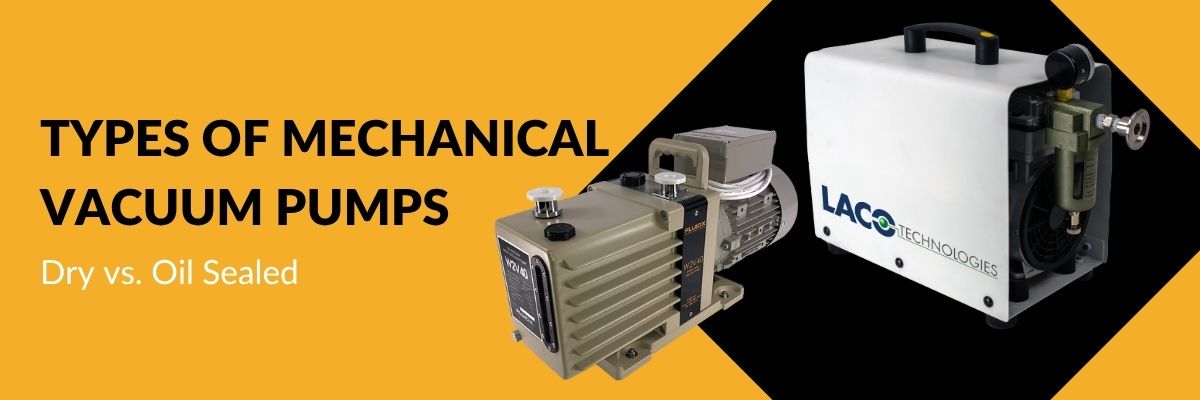
As vacuum technology has grown, a wide variety of industrial vacuum pumps have become available. Oil-sealed pumps have been a common choice because of their reliability and long lasting operation. However, more applications are seeing benefits of dry vacuum pumps in both performance and maintenance costs. So what is the right vacuum pump for your application? Below we have provided some information on both so you can make an educated decision.
Oil-Sealed Pumps
Oil-sealed, rotary vane, piston, and flooded screw pumps are reliable and durable when maintained regularly as required. There is no metal-to-metal contact, so there will be less wear and tear on moving parts, allowing them to last for decades. The mechanisms are simple and routine maintenance can be achieved in-house. They may be used in both industrial production and research applications to generate rough and medium vacuum. They can be easily paired with a booster pump to achieve higher capacities and wider vacuum ranges. Oil-sealed pumps can operate for as long as 5000-10,000 hours before they need any major overhaul like vane replacements. Some of the drawbacks of using oil-sealed pumps are that you will need to regularly change the oil to ensure the unit lasts as long as it should. Additionally, the cost of disposing contaminated waste can be quite high.
Dry Vacuum Pumps
Dry, claw, oil-less rotary, and rotary screw pumps are all examples of a dry vacuum pump. Dry pumps are not lubricated and thus do not generate waste materials. This can be a major benefit of dry vacuum because they do not run the risk of contamination. The most common application for dry pumps are in the chemical market with processes including distillation, evaporation, degassing, freeze-drying, sublimation, ect. These pumps can be pricier than oil-sealed however, they require little to no maintenance which leads to savings in the long term. They also can be fitted with booster pumps to achieve high capacities and wider vacuum ranges.
So which type of pump works best for you? If you need help deciding, give us a call at 801-486-1015 today!
